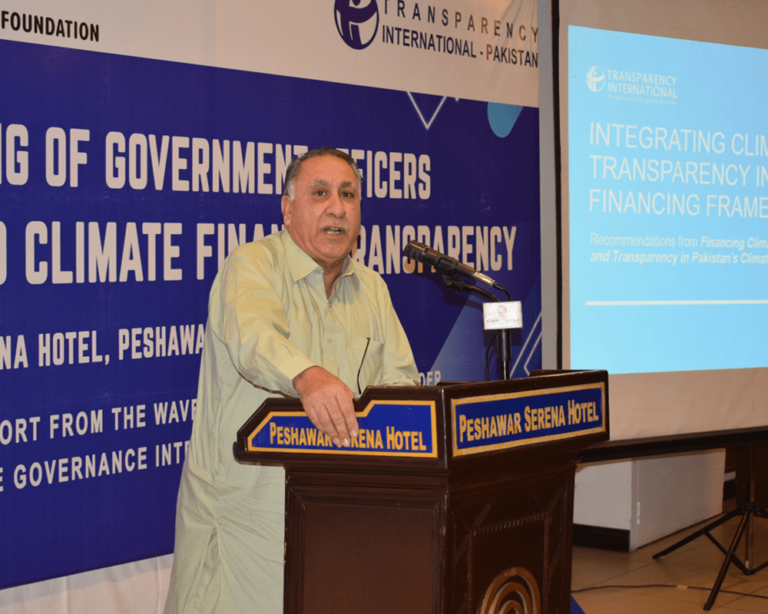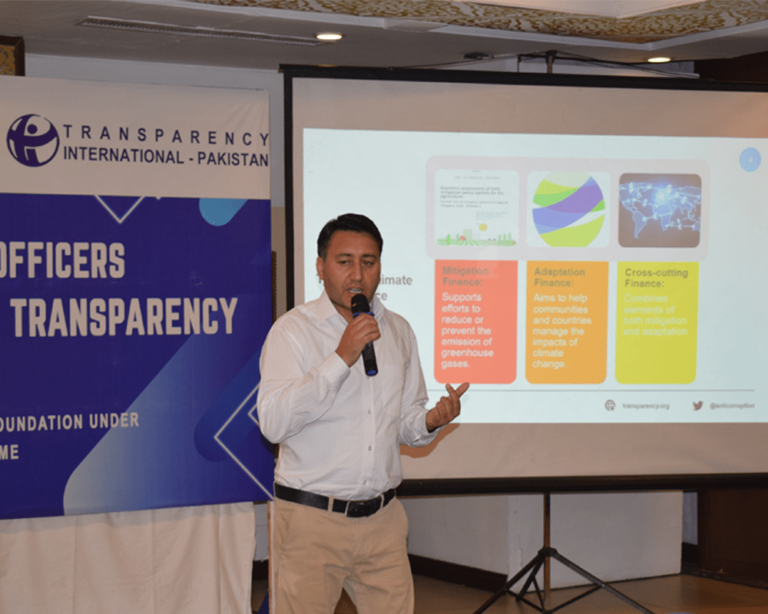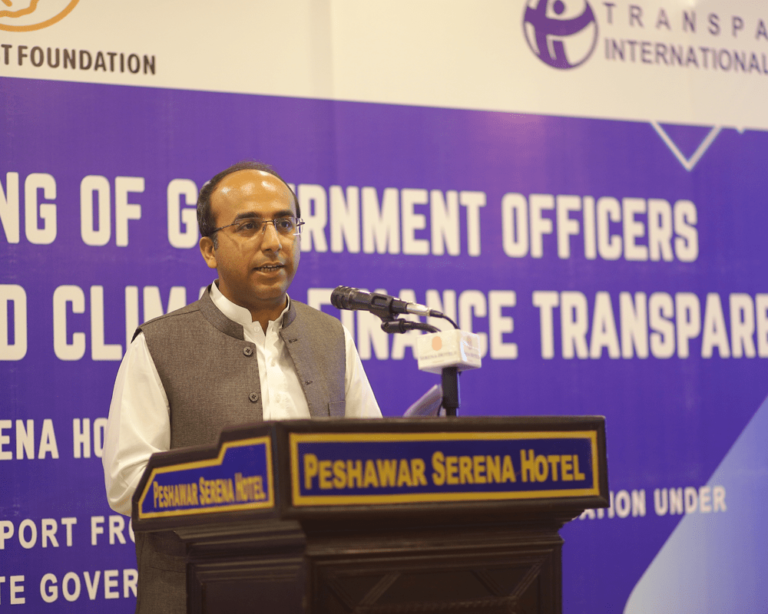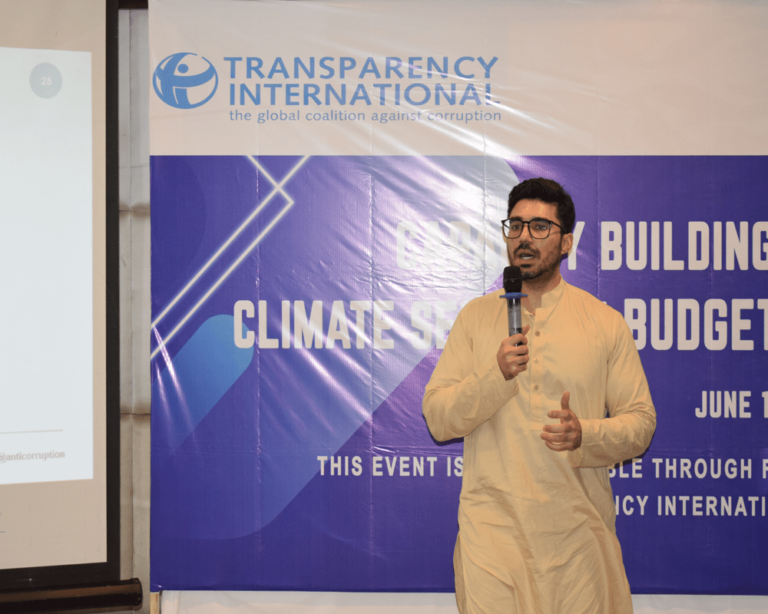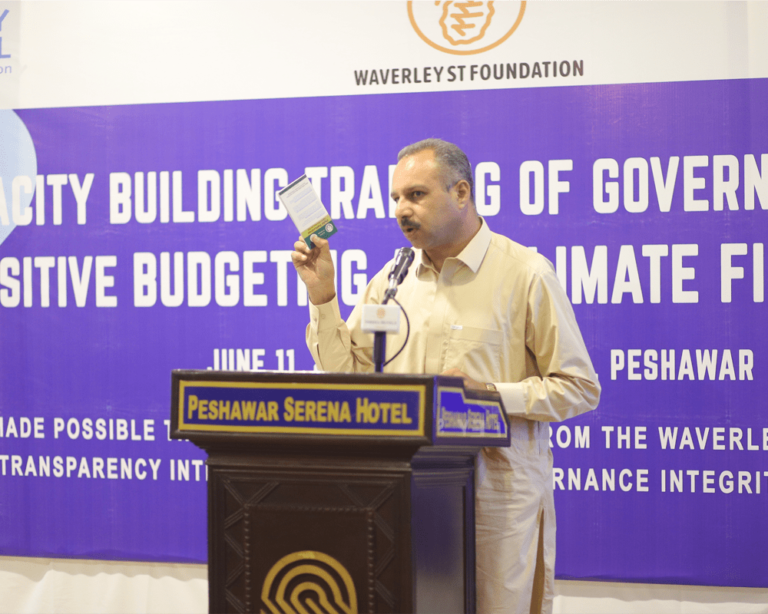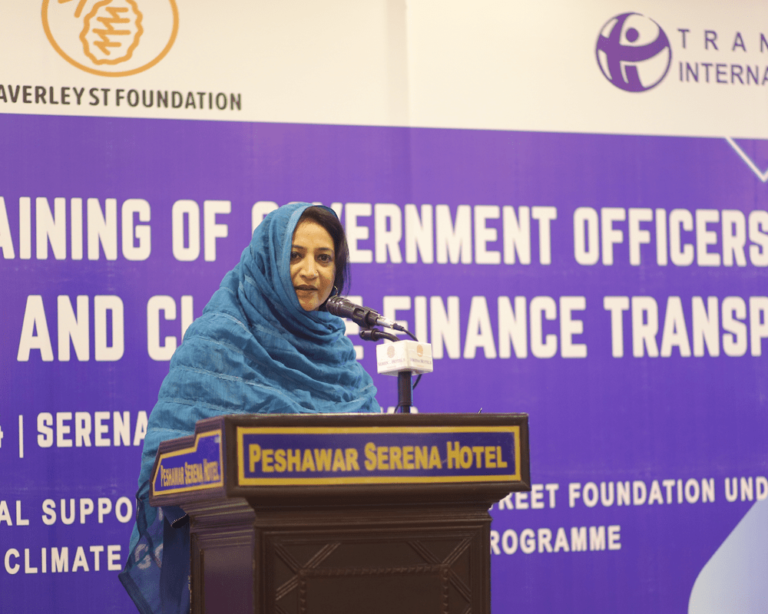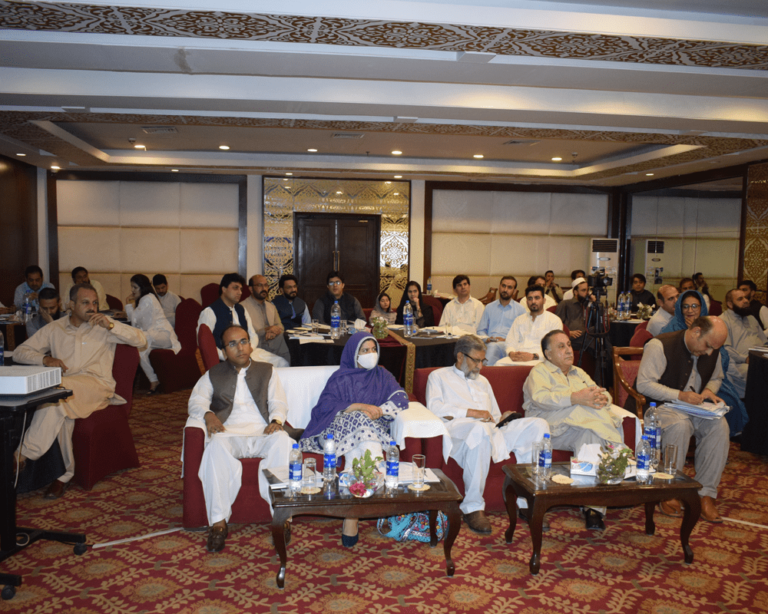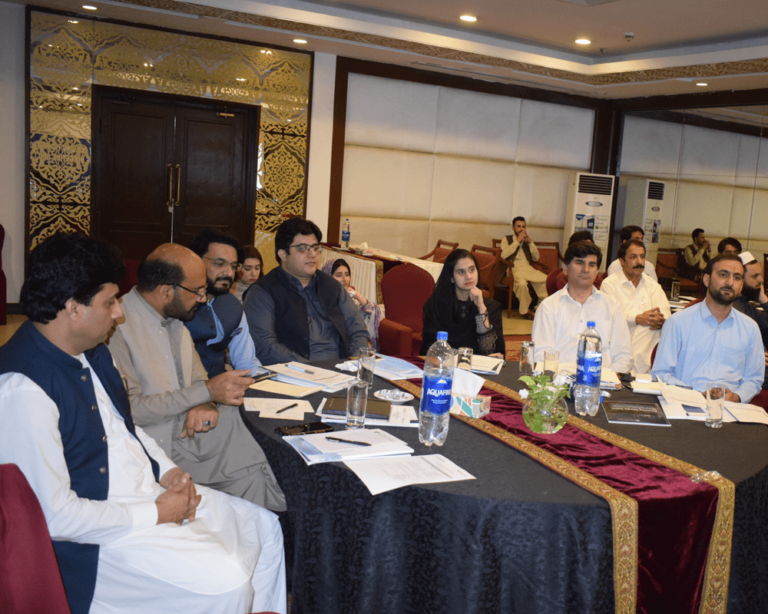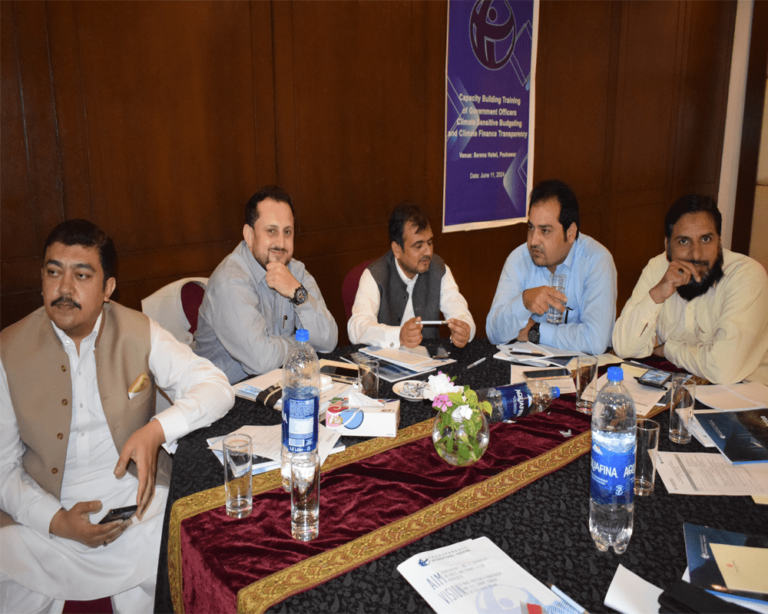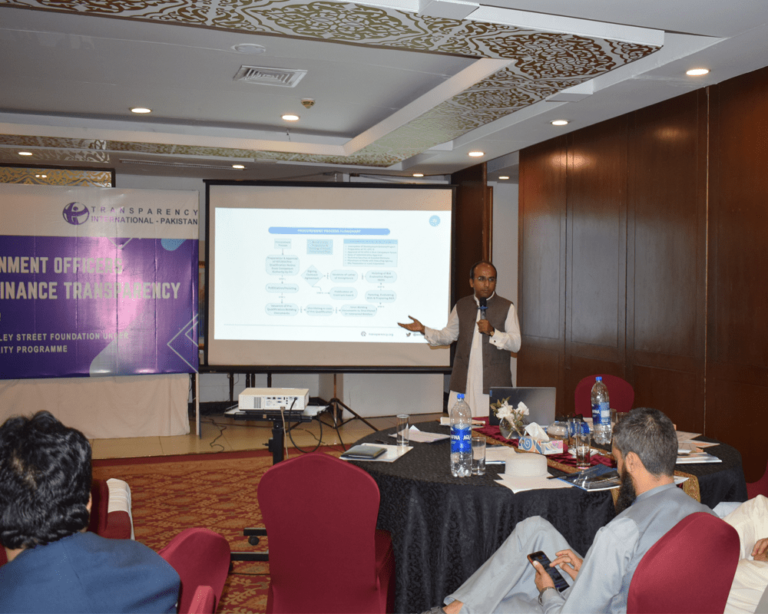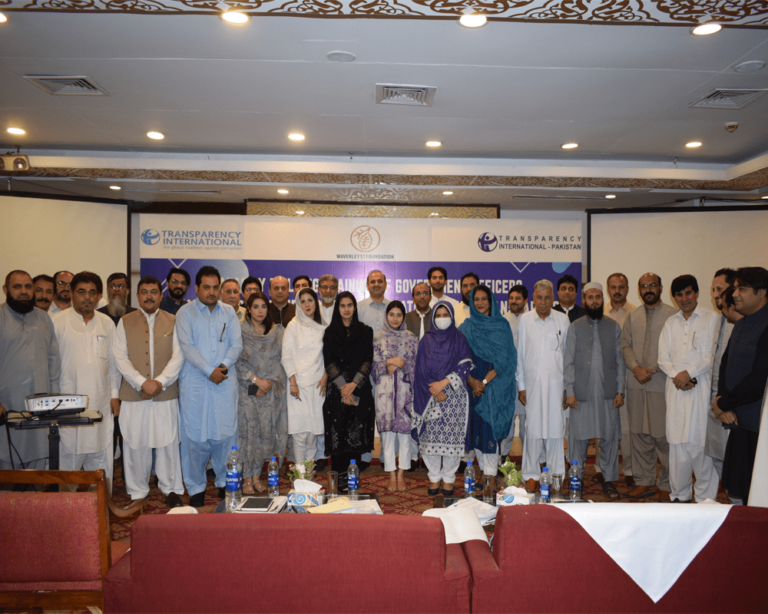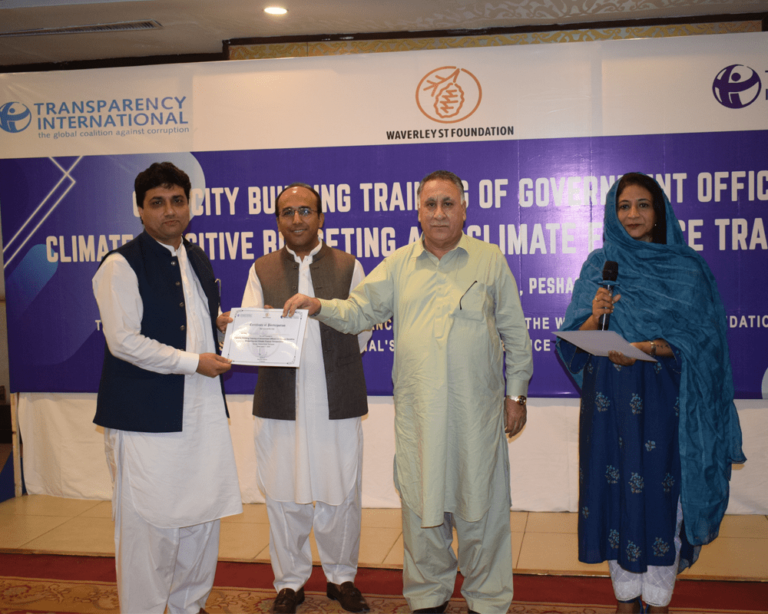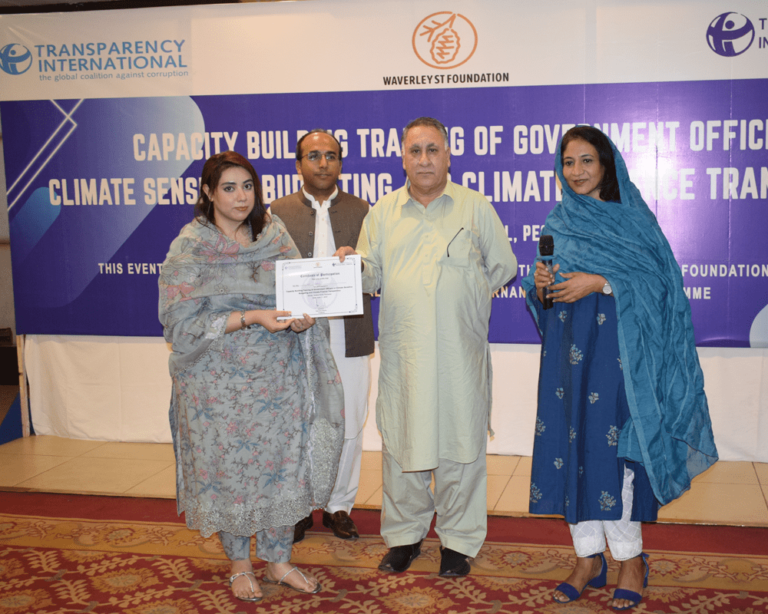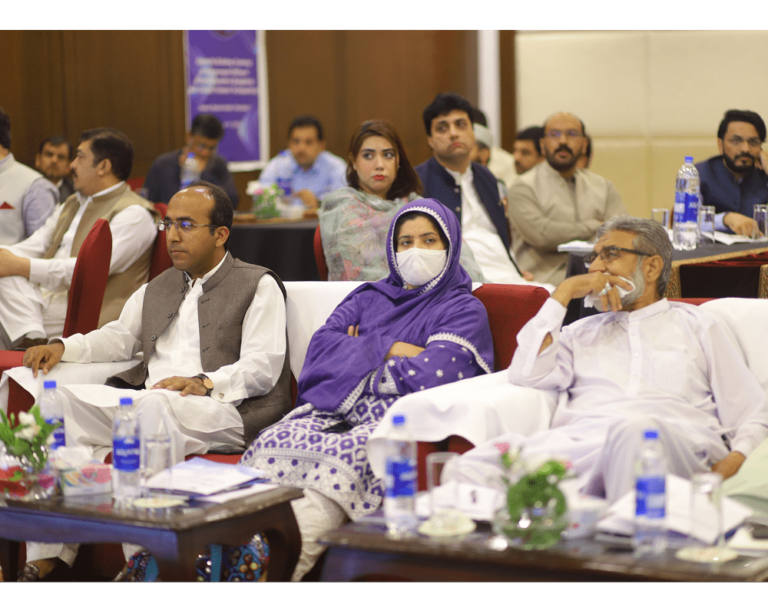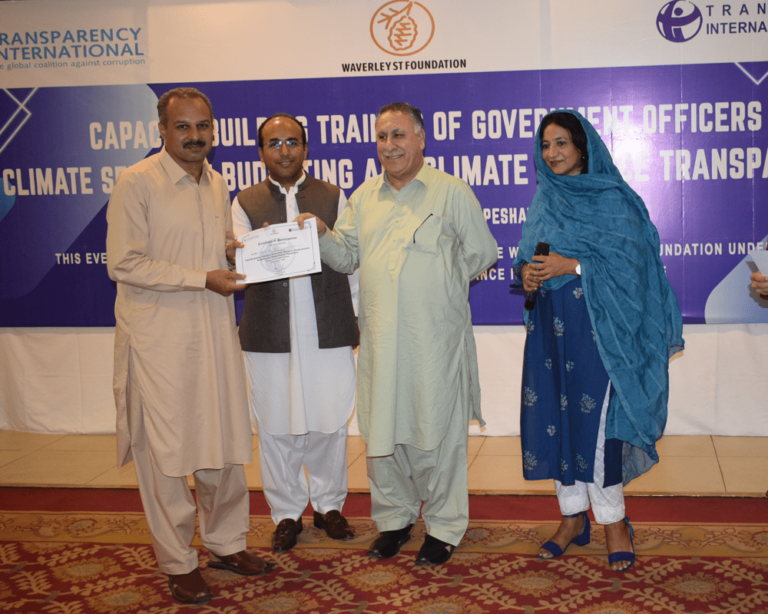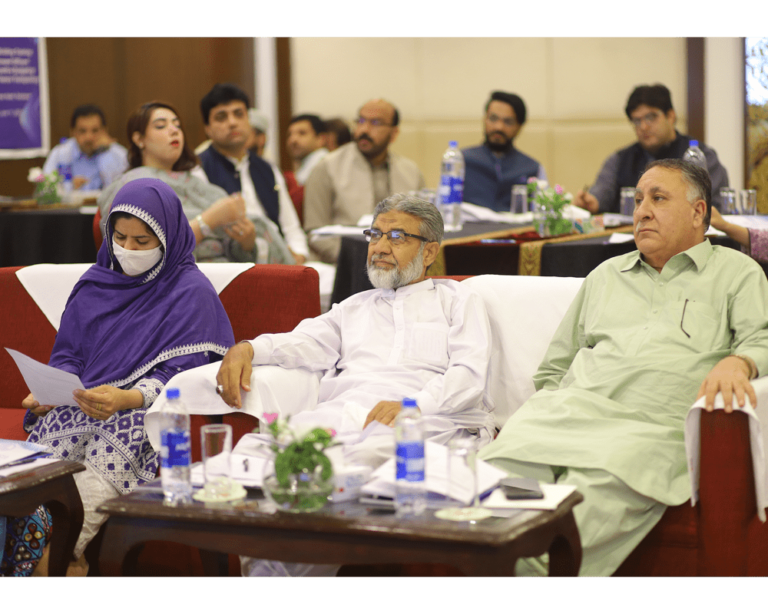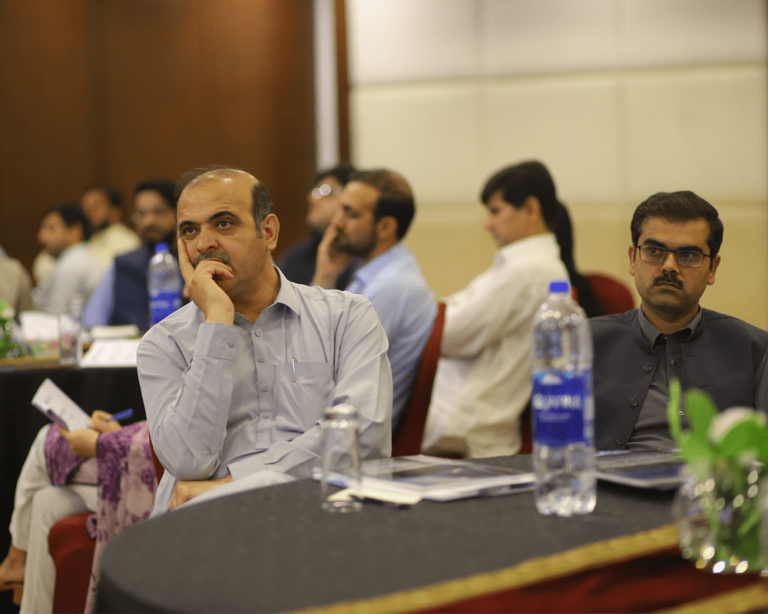- Home
- Capacity Building Training of Government Officers on Climate Sensitive Budgeting and Climate Finance Transparency
Capacity Building Training of Government Officers on Climate Sensitive Budgeting and Climate Finance Transparency
Capacity Building Training of Government Officers on Climate Sensitive Budgeting and Climate Finance Transparency
Date: Tuesday, June 11, 2024
Venue: Serena Hotel, Peshawar
Transparency International Pakistan (TI Pakistan) organized a Capacity Building Training of Government Officers on Climate Sensitive Budgeting and Climate Finance Transparency at Serena Hotel, Peshawar on Tuesday, June 11, 2024. The workshop aimed to enhance the capacity of climate-related departments in understanding climate finance, planning processes and integrating transparency, and providing tools for tracking climate finance.
Approximately 45 senior officers from climate-relevant departments including Provincial and District Disaster Management Authorities (P/DDMAs), from Charsada, Nowshera, Swabi, Khyber, and Mardan, as well as officials from the Livestock, Fisheries and Cooperative Department, Planning & Development Department, Khyber Pakhtunkhwa Public Procurement Regulatory Authority, Irrigation, Energy, Forest & Wildlife, Environmental Protection Agency (EPA), Soil and Water Conservation, Energy & Power Department, Urban Policy & Planning Unit, Planning & Development Department, Finance Department, Civil Secretariat, Relief, Rehabilitation, and Settlement, Social Welfare Department, and members of the Youth Climate Fellowship from the University of Peshawar attended the capacity-building workshop.
The workshop formally commenced with the recitation of the Holy Quran. Mr. Muhammad Yasin Wazir, Director-General of Soil and Water Conservation, Khyber Pakhtunkhwa, delivered the opening remarks, emphasizing the region’s commitment to addressing climate change. He highlighted the significance of climate-sensitive budgeting, noting that it involves considering climate change in financial decisions to enhance adaptability and resilience. Mr. Wazir stressed the importance of transparency in climate finance, ensuring that funds are allocated to projects and communities in genuine need. He expressed confidence that the training would empower participants to make informed decisions for a sustainable and resilient future.
Mr. Kashif Ali, Executive Director, welcomed the guests and participants, underlining the urgent threat of climate change to our environment and communities. He provided an overview of TI Pakistan’s Climate Governance Integrity Program, which focuses on advocacy and capacity building of the federal and provincial government departments to ensure that the budgeting process is climate-sensitive, projects are implemented with high integrity and the voices of the marginalized communities are included in the policy-making process. He thanked participants for their dedication, emphasizing the importance of their roles in addressing climate challenges and promoting sustainable development.
Moving on, Mr. Azmat Shahi, climate finance expert, delivered training on “Understanding Climate Financing and Climate Finance Landscape in Khyber Pakhtunkhwa and Pakistan”. He highlighted the three different channels for climate finance that are provincial budget, international support (funding from GCF, GEF, UNDP, World Bank, and other international donors), and private sector investment. He explained that in KP, strengthening institutional frameworks, capacity building at the provincial level, and innovative financing will improve the resilience and effectiveness of climate action initiatives in the province. This requires ensuring that climate change considerations are incorporated into the development projects to address potential climate impacts. He also shared the achievements and success stories of the provincial government aimed at initiatives such as construction of embankments, floodwalls, and drainage systems, building and upgrading roads with materials and designs that are resilient to extreme weather conditions, forest restoration and conservation, enhancing biodiversity and installation of early warning systems. He also emphasized that ensuring transparency in the implementation of the projects as well community participation is crucial for effective results.
Participants were engaged in a group activity to have a hands on experience on identifying mitigation and adaptation measures. They were divided into groups and were tasked with developing strategies for climate mitigation and adaptation and identifying various forms of climate finance.
Mr. Dawar Hameed Butt, a Climate Consultant, in his session on “Integrating Climate Lens & Transparency in Climate Financing Frameworks”, provided an overview of provincial climate governance, and highlighted that the Khyber Pakhtunkhwa Climate Change Policy 2022 was approved in 2022, with focus on water, food, and energy resource planning and emphasis on mountainous and valley regions, nature conservation. He shared that while KP has higher vulnerability to various climate risks, the Provincial Annual Development Program (ADP) did not exceed yearly allocation of PKR 50 million in any financial year. Currently, a total of 2,449.368 million Rupees worth of different mitigation and adaptation projects are ongoing or have started in KP.
He discussed global best practices for integrity and transparency in climate finance in detail and the incorporation of these practices into the provincial public financial management system. He introduced the strategic planning tools in climate projects such as Climate Public Expenditure and Institutional Review (CPEIR), Climate Change Budget Integration Index (CCBII), and Climate Public Investment Management Assessments (Climate-PIMA). While discussing these tools, Mr. Dawar told the participants that CPEIR is a diagnostic tool based on World Bank’s standard public expenditure review methodology, and provides qualitative and quantitative analysis of country’s public expenditures related to climate change. CCBII measures level of climate change integration into national PFM systems, and Climate-PIMA is a framework to assess integration of climate change policies into public investment management processes that is applicable across full budget cycle, from planning to appraisal and reporting.
Moving on to the session conducted by Mr. Kashif Ali on “Transparent Climate Procurement: Procedures and Evaluations,” he emphasized that ensuring integrity in climate finance requires adherence to the Integrity Pact (Rule 7) and Public Procurement Authority (PPRA) Rule 47. These rules mandate that departments make all documents related to bid evaluations and contract awards public.
He provided a hands on experience to the participants on how to integrate a climate lens throughout the implementation of a project, from planning and appraisal to reporting, by incorporating climate planning tools and compliance with the integrity pacts. He also presented a case study of Karachi Water and Sewerage Board (KWSB) where Rs. 1.024 Billion out of total estimated cost of Rs. 5.534 Billion was saved in Consultancy and Construction Contracts in KIII Project due to the implementation of Integrity Pact.
Mr. Syed Saadat Jehan, Deputy Director Communication of the KP Information Commission, highlighted the role of the Khyber Pakhtunkhwa Right to Information Act 2013 to ensure the transparency of climate budgeting. He informed the participants about their responsibilities under RTI and the procedure for providing information as a public office holder. He pointed out that this law is crucial for transparency, accountability, and effective decision-making in climate finance, and under this act, any citizen can obtain information from any government department.
He highlighted that government departments have to ensure transparency in climate projects and its expenditure. He emphasized on the proactive disclosure of all the budget data of departments on websites that can be accessed easily by public and outlined the potential penalties a department may face for not providing the necessary information.
The Training Workshop concluded with closing remarks by Mr. Afrasiab Khattak, Chief Environment, Planning & Development Department KP, who spoke on KP’s climate vulnerability. He emphasized that due to region’s climate challenges which are increasing rapidly, integrating climate considerations into budgets is essential for sustainable planning across all sectors.
He mentioned that and transparency in climate finance ensures that resources are used efficiently, and demonstrate provincial governments’ commitment to sustainable development goals. Enhancing government departments’ skills and knowledge on effective climate-sensitive budgeting will strengthen our capacity to face the climate challenges and address them effectively.


